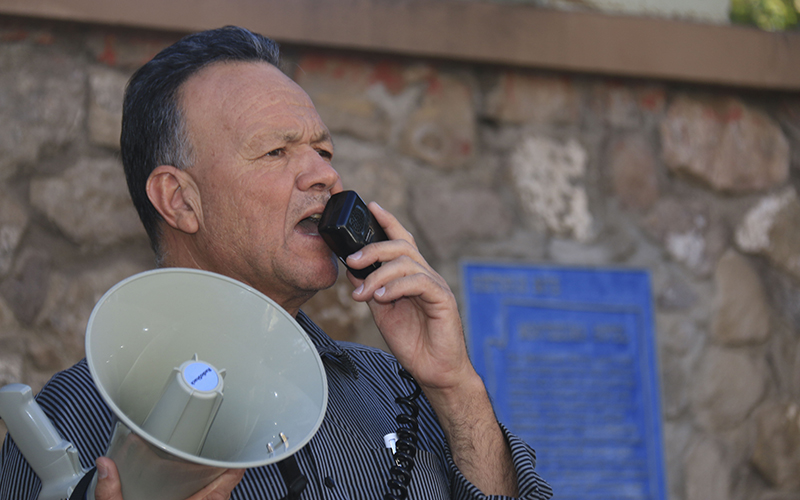NOGALES, Ariz. – As President-elect Donald Trump prepares for his January inauguration, business owners here face new uncertainties.
They’re worried about Trump’s campaign vows to build a border wall, his plan to modify trade agreements that benefit this region, his pledge to ramp up border security that might cause even longer wait lines at border crossings and the devaluation of the Mexican peso directly tied to Trump’s election, which hurts merchants in the area.
The election comes just days before the Christmas season begins, a period when retailers see their highest sales for the year, due largely to shoppers from Mexico who help stimulate the local economy by staying in hotels and buying food, fuel and other goods.
Olivia Ainza-Kramer, president and CEO of the Nogales-Santa Cruz Chamber of Commerce, chiefly expressed concerns about the economic impact of building a wall and ending the North American Free Trade Agreement, on the regional economy.

The Morley Gate Border Station, a Nogales port of entry for pedestrians crossing into the U.S. (Photo by Zach Quinn/Cronkite News)
“Most of our revenue comes from the Mexican consumers,” she said.
Trump’s election had immediate effects on Mexico and the border. On Thursday, the value of the peso weakened to over 20 pesos per U.S. dollar, compared to about 16 pesos per U.S. dollar at this time in 2015. As the peso loses value, Mexican consumers can’t buy as much in the U.S., even though they prefer American products because they have a higher quality and are more affordable than Mexican products, Ainza-Kramer said.
The cities of Nogales, although divided by a border, have a strong relationship based on trade and personal ties within their communities. Nogales, Arizona has a population of about 20,000 but the Mexico side of the city has a population of about 200,000.
More than $2.5 billion in produce grown in Mexico enters the United States through the Nogales border.
Shoppers cross the border from both sides to purchase goods and visit friends and family.
But that isn’t always easy. Wait times at Nogales ports of entry sometimes can take as long as two hours.
Francisco Barales, 58, crosses the U.S.-Mexico border every day to preach. Long wait lines, he said, make travelers upset.

Francisco Barales crosses the border daily from Mexico to preach in a park in Nogales, Ariz. (Photo by Brian Fore/Cronkite News)
“Everybody gets mad because it’s very slow,” he said.
Ruben Lopez, 22, a Mexican citizen from Nogales, Sonora crosses the border by vehicle about every two weeks to visit friends and to shop. He worries that increased security at border crossings would result in longer lines, causing people to cross less frequently. Border security is already good, he said.
“They check your tires. They check the roof. They check if you have something below your seats, in the windows, even inside the doors. They check everything,” Lopez said.
Others expressed concern over the feasibility and costs of building a wall.
“I can’t imagine it, it’s something crazy,” said Eduardo Bauman, an immigrant from Sonora who became an American citizen. He said the costs would be “excessive.”
Still, Ainza-Kramer, of the chamber of commerce, said she wants to give the new president-elect the benefit of the doubt. “He is a businessman,” she said. “And hopefully he will understand the importance of commerce, trade and doing business with the rest of the world.”